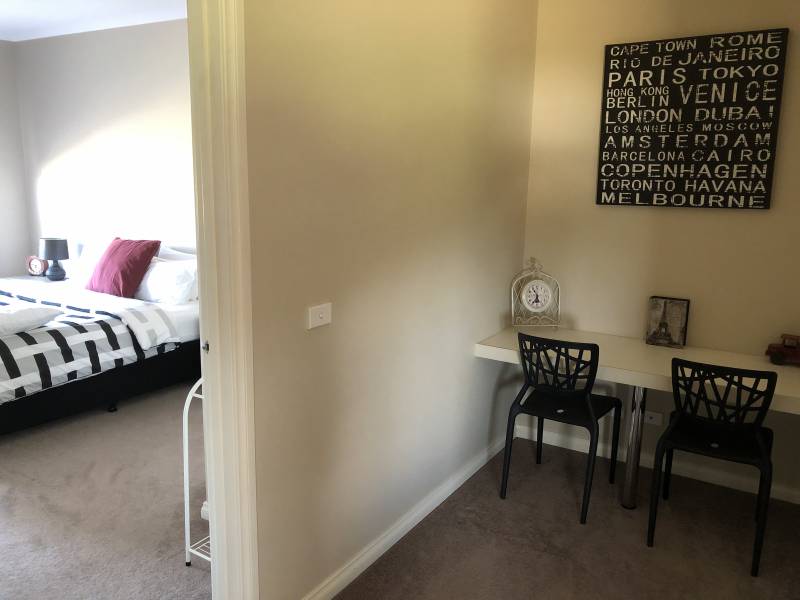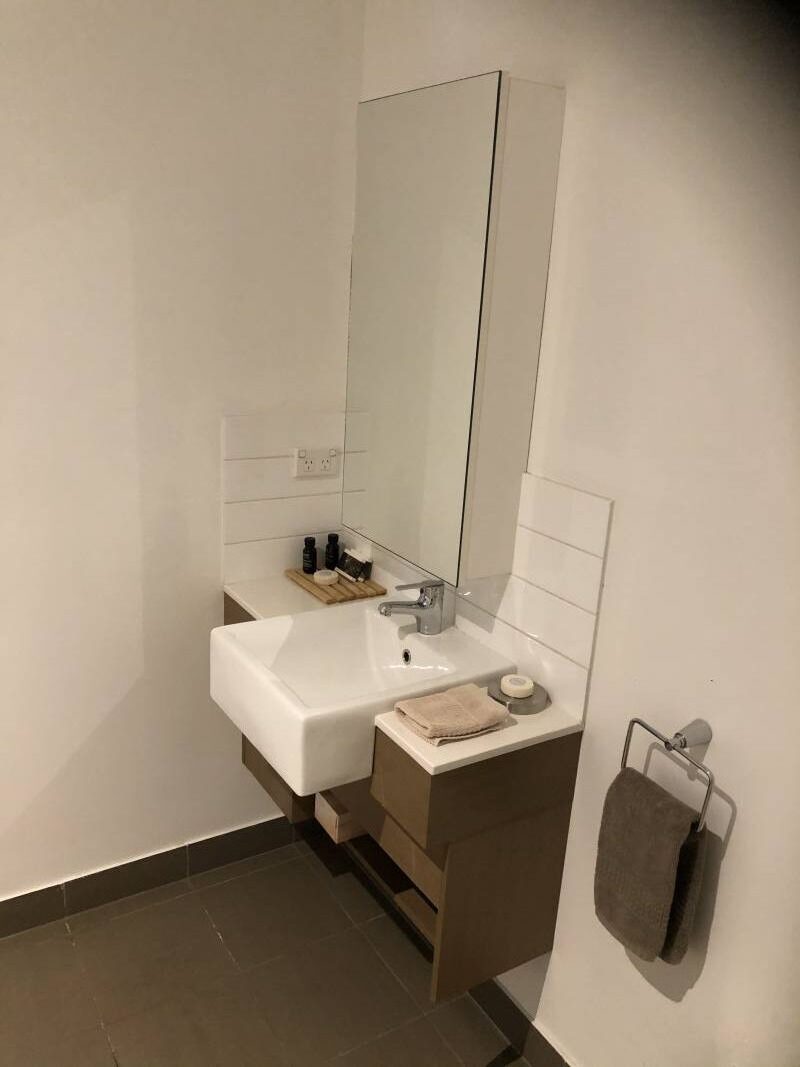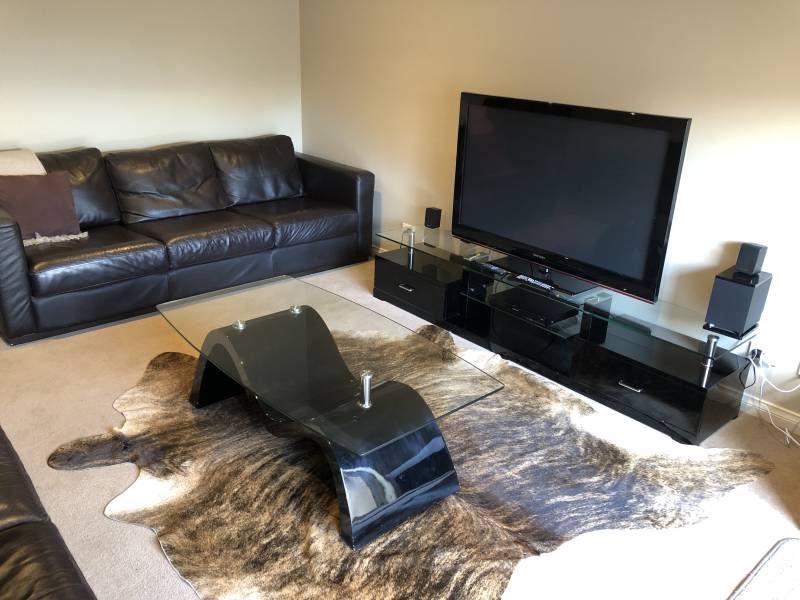In the bustling landscape of modern living, choosing an apartment or a house is more relevant than ever. Many are turning towards apartment living, drawn by its unique advantages.
This blog post explores why an apartment might be the better choice for today's urban dwellers. From the financial benefits to the convenience of amenities and the allure of vibrant community life, we explore why apartments are becoming increasingly popular.
Advantages Financially
Choosing to live in an apartment offers various financial advantages that can significantly benefit individuals and families, making it an increasingly popular choice in urban and suburban settings.
Affordability:
Apartments generally come with a lower purchase price than houses, which makes them more accessible, especially for first-time homebuyers and those on a budget. This affordability extends to buying and renting, providing an economical housing option in high-demand urban areas.
Lower Maintenance Costs:
Unlike houses, where the owner is responsible for all maintenance, apartment living often includes maintenance services, particularly for common areas and external features, which the apartment association manages. This reduces the individual financial burden and the hassle of dealing with repairs.
Built-In Amenities:
Many apartment complexes include amenities like gyms, pools, and community spaces that would be costly to access or maintain independently. Residents benefit from these facilities without significant personal investment, which can lead to savings in lifestyle expenses.
Increased Security:
Apartments often provide enhanced security measures, which can reduce insurance costs. Gated access, security cameras, and sometimes even on-site security personnel contribute to a safer living environment, potentially lowering home insurance premiums.
Utility Savings:
Due to their smaller size and compact design, apartments typically incur lower heating and cooling costs than larger homes. Shared walls further enhance this, reducing the need for heating or cooling, which can lead to significant energy savings.
Strategic Locations:
Apartments are often situated in prime urban locations close to workplaces, shopping, dining, and entertainment, as well as public transport systems. This proximity can significantly reduce commuting costs, reducing the need for a car and associated expenses like fuel, maintenance, and insurance.
Real Estate Appreciation: While apartments may appreciate differently than standalone houses, strategically located apartments in high-demand areas can see substantial appreciation, making them a wise investment in the long term.
Rental Income Potential: Those who buy an apartment as an investment property can earn rental income. This can be a steady source of revenue, especially in well-located areas where demand for rentals is high.
Tax Advantages: Property owners can often take advantage of tax deductions related to property investment, such as interest on a mortgage, property taxes, and costs associated with property management, maintenance, and improvements.
Simplified Living and Cost Efficiency: Apartment living's compact nature encourages a simpler lifestyle. This can lead to indirect financial benefits, such as reduced spending on furnishings and household goods and a lower likelihood of accumulating unnecessary items that require space and maintenance.
Practical Considerations
Choice of Accommodation Type:
Apartments offer different living arrangements, from individual studio units to larger apartments for families, each catering to specific lifestyle needs and preferences.
Location:
Proximity to educational institutions, work, public transportation, and amenities like shopping centres and entertainment venues is crucial. The right location can enhance lifestyle convenience and reduce commuting costs and time.
Ventilation and Natural Light:
Apartments should have adequate windows to ensure sufficient natural light and air circulation. Corner units typically offer better ventilation and more natural light.
Building Amenities:
Look for buildings with well-maintained amenities, such as gyms, pools, and communal gardens, which can enhance your living experience and provide social interaction opportunities without leaving home.
Community and Neighbour Interaction:
The apartment complex should foster a sense of community, with common areas designed to encourage interaction among residents. Knowing your neighbours can enhance a sense of security and belonging.
Noise Insulation:
Consider the building's construction quality, especially soundproofing measures between units. This is important for privacy and comfort, particularly in high-density living environments.
Sustainability Features:
Eco-friendly features such as energy-efficient appliances, sustainable waste management, and green spaces are important for reducing one's ecological footprint and can also lower utility bills.
Building Management:
Efficient and responsive building management is crucial for addressing maintenance issues promptly and ensuring the well-being of the building and its amenities.
Accessibility:
The building should be accessible, with features like elevators and ramps to accommodate residents of all ages and abilities.
Privacy Considerations:
Good apartment design can help maintain privacy—consider aspects like the layout of windows and the proximity to neighbouring units.
Long-term Value:
Whether you're renting or buying, consider the apartment's potential for appreciation, especially considering it an investment.
Regulations and Restrictions:
Be aware of homeowner association rules or regulations that might affect your ability to modify or own pets.
Lifestyle Factors to Think About
Cost of Living:
Apartments can vary widely in cost depending on their location and the amenities offered. It's essential to budget not only for rent but also for any additional fees, such as utilities, parking, and building maintenance costs, that may not be included in the rent.
Location:
The location of the apartment is crucial. Proximity to work, educational institutions, public transportation, and essential services like grocery stores and medical facilities can significantly influence your living experience.
Size and Layout:
Consider whether the apartment meets your space requirements. Does it offer enough room for your needs, or will you have to sacrifice certain comforts? The layout also affects how liveable the space is, especially if you spend a lot of time at home.
Amenities:
Many apartments offer amenities that can enhance your lifestyle, such as gyms, pools, communal gardens, and security features. Evaluate whether these amenities justify any additional cost and how much you will realistically use them.
Community and Social Interaction:
Living in an apartment often means closer proximity to your neighbours, which can be positive or negative depending on the community dynamics. Consider whether the apartment building fosters a sense of community and if it suits your social preferences.
Noise Levels:
Apartment living can sometimes involve dealing with more noise from neighbours, street traffic, or communal areas. Check the soundproofing measures in place and consider your tolerance for noise.
Pet Policies:
The building's pets need to have pets. Some apartments do not allow pets, while others might restrict the number, size, or type of pets you can have.
Maintenance and Upkeep:
Understand who is responsible for maintenance and what the process involves. Efficient handling of maintenance requests is crucial for a hassle-free living experience.
Cultural and Recreational Access:
Consider what cultural and recreational facilities are nearby. Access to parks, museums, theatres, and other cultural amenities can significantly enhance your quality of life.
Check for energy-efficient appliances, recycling facilities, and other green initiatives within the apartment complex that can help reduce your environmental impact and potentially lower your utility bills.
Future Proofing:
Consider how the apartment will meet your needs over time. For instance, if you plan to start a family, will there be enough space, or is a playground nearby?
Protection and Well-being
When considering the move to apartment living, prioritizing your protection and well-being is essential. Here is an overview of the measures and considerations you should evaluate to ensure a safe and healthy living environment in an apartment setting:
Home Security Systems:
Installing robust security systems such as alarms, CCTV cameras, and access control systems can significantly enhance your safety. Look for apartments that support or already include these features.
Security Alarms and CCTV:
Opt for apartments that offer advanced security setups. Features like motion detectors, intercom systems, and surveillance cameras deter potential intruders and help monitor your surroundings effectively.
Access Control:
Ensure that the apartment building has secure, well-maintained entry points. Systems that require vital cards or codes for entry can provide an additional layer of security.
Professional Installation and Maintenance:
Consider properties that engage reputable security firms to install and maintain their security systems to ensure reliability and efficiency.
Personal Safety Measures:
Evaluate the neighbourhood's general safety. Check local crime statistics and speak to current residents about their experiences regarding personal safety.
Emergency Preparedness:
Ensure the apartment complex has fire safety measures, such as smoke detectors, fire extinguishers, and marked escape routes. Check if the building conducts regular safety drills.
Building Management:
A responsive and proactive building management team is crucial. They play a significant role in maintaining the security infrastructure and addressing any safety concerns promptly.
Mental Well-being:
Living in a secure environment also supports mental well-being. Consider the availability of quiet, private spaces within your apartment and the building to retreat and decompress.
Health Considerations:
For overall well-being, look for apartments with gyms, pools, or wellness areas, which can help maintain an active and healthy lifestyle.
Community Support:
A strong sense of community can enhance both safety and psychological well-being. Apartment complexes that foster community engagement through organized events or social spaces can contribute to a supportive living environment.
Conclusion
Apartment living offers numerous financial benefits, including affordability, lower maintenance costs, built-in amenities, increased security, utility savings, strategic locations, real estate appreciation, rental income potential, tax advantages, and simplified living. Apartments are often more accessible, especially for first-time homebuyers and those on a budget, and often come with maintenance services managed by the apartment association.
They also offer built-in amenities like gyms, pools, and community spaces, which would be costly to maintain independently. Additionally, apartments provide enhanced security measures, potentially lowering insurance costs. Apartments are often situated in prime urban locations near workplaces, shopping, dining, and entertainment, making them a wise investment in the long term. Additionally, apartment living can provide rental income, tax advantages, and simplified living, reducing spending on furnishings and household goods.
Apartments offer various living arrangements catering to specific lifestyle needs and preferences. Location is crucial, as it can enhance lifestyle convenience and reduce commuting costs.
Building amenities such as gyms, pools, and communal gardens should be well-maintained to provide social interaction opportunities. The apartment complex should foster a sense of community, with common areas designed to encourage interaction among residents. Noise insulation is essential for privacy and comfort, especially in high-density living environments.
Content Summary
- The decision between an apartment and a house is increasingly relevant in today's urbanized settings.
- Apartments provide unique advantages that draw more people towards this style of living.
- Financial benefits are a significant factor, with apartments often being more affordable than houses.
- The lower purchase price of apartments makes them accessible to more buyers, including first-time homeowners.
- Renting an apartment can also be more economical, especially in high-demand urban areas.
- Apartments typically have lower maintenance costs, as the management handles many upkeep resbuilding'sies.
- Common areas and external features are maintained through the apartment association, reducing individual burdens.
- Many apartments offer amenities like gyms, pools, and community spaces.
- These amenities provide significant savings in lifestyle expenses and enhance the quality of living.
- Enhanced security with gated access, cameras, and sometimes on-site personnel adds a layer of safety.
- Apartments often feature energy-saving designs, reducing utility costs for heating and cooling.
- Their strategic urban locations offer unparalleled access to workplaces, shopping, dining, and entertainment.
- The potential for real estate appreciation makes apartments a wise investment in the long term.
- Those who buy apartments for investment can benefit from rental income, especially in desirable areas.
- Property owners enjoy tax advantages such as deductions on mortgage interest, property taxes, and maintenance costs.
- The compact nature of apartments encourages a simpler, more cost-effective lifestyle.
- Apartments can vary in size and type, catering to different preferences and needs.
- The location of an apartment is crucial for lifestyle convenience and can significantly reduce commuting costs.
- Adequate natural light and ventilation are essential for a healthy living environment.
- Well-maintained building amenities can greatly enhance residential life and encourage social interactions.
- Knowing your neighbours can improve security and foster a community atmosphere.
- Effective soundproofing measures are essential for privacy and comfort in densely populated living environments.
- Eco-friendly features in apartments can help reduce environmental impacts and utility bills.
- Efficient building management is critical to maintaining the quality and safety of apartment facilities.
- Accessibility features are essential to accommodate residents of all ages and abilities.
- Good apartment design should maintain privacy through thoughtful window placement and layout.
- The long-term value of an apartment should be considered as an investment.
- Homeowner association rules may impact the ability to make modifications or own pets.
- The cost of living in an apartment goes beyond rent, including utilities, parking, and maintenance fees.
- Choosing the right location can enhance the living experience by providing easy access to necessary services.
- The size and layout of an apartment should meet the residents' requirements and lifestyle.
- Evaluating the amenities an apartment complex offers is crucial to determine if they justify additional costs.
- Proximity to neighbours might lead to more social interactions, which can be positive or negative.
- Noise levels from neighbours and the surrounding area are essential considerations in apartment living.
- Pet policies in apartment buildings are essential for pet owners.
- Understanding who is responsible for maintenance helps anticipate the level of service and hassle involved.
- Access to cultural and recreational facilities can significantly enhance quality of life.
- Energy-efficient appliances and sustainable practices in apartments can lead to significant savings.
- Future-proofing the apartment for changing needs is essential, especially for growing families.
- Security systems like alarms and CCTV add a layer of protection and peace of mind for residents.
- Advanced security setups can deter potential intruders and effectively monitor the premises.
- Secure entry points that require vital cards or codes can enhance the overall security of an apartment complex.
- Professional installation and maintenance of security systems ensure reliability and functionality.
- The general safety of the neighbourhood should be evaluated through local crime statistics and resident feedback.
- Fire safety measures and regular drills are essential for emergency preparedness.
- A responsive building management team is crucial in maintaining security and addressing concerns.
- A secure living environment and private, quiet spaces can support the mental well-being of residents.
- Health considerations like available fitness facilities and wellness areas are essential for maintaining an active lifestyle.
- A strong community within the apartment complex can enhance safety and mental health.
- Community engagement through organized events or social spaces can provide a supportive and enjoyable living environment.
FAQ About Accommodation
Apartments generally have a lower purchase price and require less maintenance. This can make them a more accessible option for first-time buyers and those with limited budgets.
Beyond the lower initial cost, apartment residents often enjoy lower utility bills due to smaller living spaces and shared walls and potential savings from on-site amenities that eliminate the need for external memberships.
Apartments are typically located closer to city centres, workplaces, and essential amenities like public transport, shops, and entertainment venues, reducing commuting costs and time.
Many complexes offer a range of amenities, including swimming pools, fitness centres, security services, and sometimes even luxury options like concierge services and rooftop terraces.
Yes, apartments often have enhanced security features such as gated access, CCTV cameras, and sometimes even on-site security personnel, offering residents a safer living environment.


